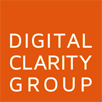Agencies and consultancies: not a turf war
Ever since traditional management consultancies and systems integrators (SIs) started buying and building digital practices a few years ago, and media holding companies similarly have stepped up the pace of buying independent agencies and consolidating them, there has been a lot of discussion in the industry around which types of firm will ultimately win in the marketplace. Should agencies become more like consultancies and/or SIs, able to advise on corporate strategy and lead complex technology projects? Should management consultancies and Sis become more like agencies, providing creative and design services? Should the 4A’s – a trade organization that has served the advertising industry for 100 years – allow consultancies like Accenture and Deloitte to become members? And isn’t it something that AdAge’s ranking of the 10 largest agency companies in the world now includes 4 consultancies?
There are three problems with this line of thinking:
- The assumption that the only organizational models for working with digital partners are those that already exist: agency, SI, consultancy.
- The belief that helping customers with their digital capabilities is a zero-sum game: if Sis and consultancies win, then agencies (and the holding companies that own them) must lose. Or vice versa.
- The lack of discussion about what are the characteristics of a great digital partner, and which companies consistently demonstrate those characteristics.
The real competition is not between the categories of digital partners. Rather, it is between the digital partners that are most successful at meeting and exceeding their customers’ expectations.
And there is arguably an infinite number of engagements around the world where either a consultancy, agency, SI, or even a combination of the three best suit a given customer at a given point in time. In our VOCalis research, we’ve heard from multiple companies of disappointing experiences with the largest and most well-regarded firms in all three categories. On the flip side, we’ve heard from other companies that have used specialized, niche agencies for engagements involving complex technology integrations and were thrilled with the results.
When it comes to selecting digital partners, you need to consider those that are the best fit for your company. If you are a small to medium business – say, between $10 and $100 million in annual sales – and are looking for a company to help you with improving how customers experience your brand across multiple channels, you would hire a provider that has a blend of creativity, design, and technology capabilities. If you look to engage a Tier-1 SI that on paper also has a design practice, you run the risk of not getting the attention and expertise you are looking for, as well as being considered just one of many less-profitable customers. Even getting such a firm’s attention to bid for your project may be a challenge (we’ve seen this multiple times in our end-user service provider selection engagements with customers.) On the other hand, if you have a strong in-house IT team, you may only need a partner who understands technology, but doesn’t necessarily do heavy-lifting implementation and integration. In that case, a technology-savvy agency, or a creative agency that can bring in a technology-savvy partner, may be just what you need.
However, if you are a global $10 billion CPG company and need to launch e-commerce sites across 20 countries in a short period of time and have a lean IT organization that lacks e-commerce expertise, you will need a provider that has in-depth experience in technology implementation and integration at scale.
A recent announcement from McDonalds illustrates the need to choose the right partners, not the right type of partners. The fast-food giant decided it needed both an agency and an SI to help it create and execute on a “restaurant of the future” strategy. To this end, McDonalds announced that it has hired SI CapGemini and agency Publicis.Sapient to work on this challenge. Though Publicis.Sapient itself has fairly substantial technology expertise, and is one of the largest agencies within the Publicis group, someone involved in the project rightly recognized that McDonalds needed a partner to handle the complex back-end integrations at a global scale that such a project would involve.
If you are trying to figure out if you should use an agency, SI, or consultancy for your digital technology project, I urge you to instead reframe the question as: what are the most important challenges and goals of my organization, and what companies can demonstrate they have consistently satisfied customers with similar challenges and goals? Then start your research for your initial list. And please do contact us if you need help with the next stages of digital partner selection








